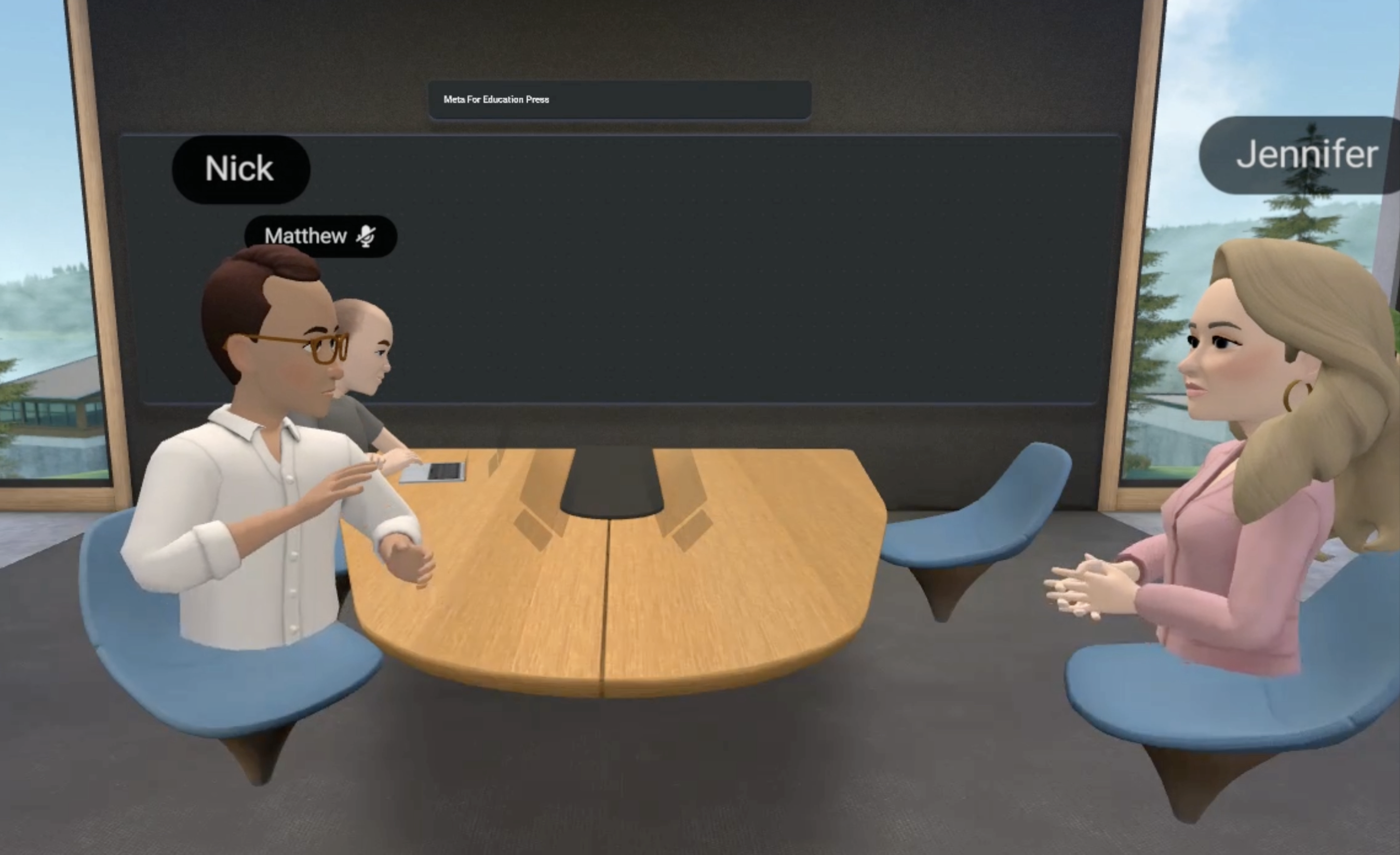Meta wants to put students and teachers in Quest VR headsets

If Meta has its way, students will tour faraway museums, walk among dinosaurs and view human intestines up close — all from the comfort of their classroom, using Quest virtual reality (VR) headsets.
Why it matters: As educators grapple with AI and other new tech tools, a deep-pocketed push to turn VR into a classroom staple raises new questions about the future of learning — and what's best for kids.
Driving the news: Facebook parent Meta announced plans Monday to try to make the Quest VR headset a central piece of school equipment.
- In time for the fall semester, it'll make available a suite of visually engrossing education apps that teachers can use with students ages 13+.
- Teachers will be able to manage multiple Quest devices at once, without the need for each device to be individually prepared and updated.
Meta won't be developing the educational content itself — it'll just provide the platform for companies that are building VR learning experiences, like Roblox.
- The product's name and features will be announced in the coming months.
What they're saying: "We accept that it's going to take a long time, and we're not going to be making any money on this anytime soon," Nick Clegg, president of global affairs at Meta, told Axios — in an interview conducted remotely using Quest VR headsets.
- "We're investing billions of dollars in constantly iterating on the technology."
Teachers have been clamoring for such a product, Clegg said.
- "It really was not us that suddenly found that there was demand," he said. "It was educators knocking on our door saying, 'Hey, this is a great way to teach people.'"
- "They tell us that, perhaps unsurprisingly, the immersive experience is just a lot more fun, engaging and memorable for students than it is teaching them things from dusty textbooks."

The big picture: "Of all the ways in which metaverse technologies like virtual, mixed and augmented reality could prove to be transformative, the potential they have for education is one of the most exciting," Clegg wrote in a blog post published today laying out the new initiative.
Friction point: Parents and educators may not think it's a great idea for students to have more screen time in class — teaching has already migrated away from pencil, paper and books.
- Clegg's response: "This whole technology is most emphatically not about screens."
- "The whole point of immersive technology is precisely that we get well beyond screens and we feel that we are inhabiting a shared space."
Case in point: "If you're teaching a bunch of kids about ancient Rome, just imagine what fun it is to walk with the whole class through the streets of ancient Rome together," Clegg said.
- "And people can giggle and say, 'Oh, look, there's Brutus plunging a knife into the back of Julius Caesar.'"
Yes, but: The two big competing VR/MR (mixed reality) headsets — Meta's Quest and Apple's Vision Pro — are heavy, expensive and don't work for people with some vision impairments.
- Plus, there are plenty of VR skeptics who say it's much better for kids to communicate and socialize in person without headsets — particularly during school hours.
Threat level: A 2021 science paper looked at 85 studies on the effects of VR tech on kids and adolescents and found concerns over "cybersickness," visual symptoms, obesity and sleep disorders.
State of play: Meta has been pushing Quest in schools for at least a year, since Clegg published a post on Medium entitled, "How the Metaverse Can Transform Education."
- Last fall, Meta announced it was supplying VR equipment and resources to 15 U.S. universities for use in training nurses, teaching languages and helping business students learn "soft skills" like interviewing.
💬 Our thought bubble, from Axios' Scott Rosenberg, managing editor for technology: Quest is the most popular VR platform ever, and it's doing reasonably well — but not achieving the kind of scale Meta/Facebook is used to.
- So the education strategy is a long-term growth effort, like Apple's in the 1980s, when it hit a wall with business adoption of Macs.
And Axios' Ina Fried — who recently spent two weeks wearing Apple's Vision Pro headset — notes that maintenance could be a hassle — not just disinfecting them between students, but also the fact that they're not easily repaired.
The bottom line: Meta is searching for a killer app for its Quest headsets, which today are primarily used for gaming. Could it be education?